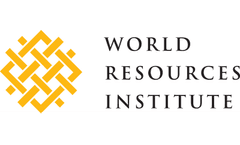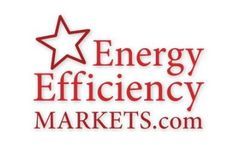Refine by
Renewable Energy Certificates Articles & Analysis
14 articles found
According to data released by the Intergovernmental Panel on Climate Change (IPCC), biomass has a carbon emission intensity of 18 g/(kW·h), comparable to wind power and negligible compared to fossil fuels like coal, oil, and natural gas. As a result, biomass energy is considered a theoretically "zero-carbon" fuel. With reserves second only to coal, oil, and natural gas, ...
The drive is on to improve the sustainability performance of data centers with tools such as IIoT platforms, energy monitoring and management, and innovative cooling technologies. However efficient a data center becomes, the carbon footprint of the electricity itself will be the main factor in its environmental performance. The exact amount of electricity consumed in data centers around the ...
Construction duration is estimated at two years and commercial operations could start as early as mid-2023, Wood said. Grid role As renewable energy penetration grows, CSP could play a key role in system reliability. The Australian Energy Market Operator (AEMO) has called for new energy storage capacity to increase reliability ...
Cerro Dominador signs PPA with Copec energy group Cerro Dominador, Latin America's first CSP plant, has signed a five-year power purchase agreement (PPA) with Chilean fuel distributor Copec, Cerro Dominador, a subsidiary of EIG Global Energy Partners, said December 11. ...
Renewable Energy Credit (REC) An incentive in the form of a tax credit that certifies that the holder produced one megawatt hour (MWh) of renewable energy and is therefore eligible for a rebate. Also known as a renewable energy certificate (REC) in some U.S. states. Solar ...
The key development was the shift in emphasis from low rates to the generation of new, local renewable energy projects. In the early days, with prices of renewables high, CCAs focused on reducing electric rates and purchased low-cost power through the wholesale markets. As renewables became more affordable, the next generation ...
A green tariff is a utility program that allows customers to source up to 100 percent of their electricity from renewable sources located on their local grid. Today, most renewable energy programs provided by utilities only offer customers Renewable Energy Certificates (RECs)—the green ...
And Herbert Hoover might be promising a solar panel on every roof, rather than a chicken in every pot – and the pot would sit on a smart-metered stove, powered by a plug-in hybrid, eligible for renewable energy certificates. Today, green credentials count. Hardly a day goes by without a mayor, governor or legislator claiming some sort of first, ...
We like Connecticut’s energy efficiency certificate or “white tag” trading program, which takes a page from the successful renewable energy certificate market now in several states. ...
What are RECs? Renewable Energy Certifi cates (RECs), also known as “green tags,” “green certifi cates,” and “renewable energy credits,” are tradable instruments which can be used to meet voluntary renewable energy targets as well as to meet compliance requirements for renewable energy policies. A REC is a certifi cate that indicates the generation of one megawatt hour (MWh) of electricity from ...
The Commission will focus especially on issues surrounding carbon offsets, renewable energy certificates, environmental packaging claims, and green building issues. ...
Renewable Energy Certificates (RECs) provide businesses a means to support renewable energy generation and meet clean energy goals. This fact sheet answers some basic questions about RECs and REC purchasing. What are RECs? Renewable Energy ...
Few topics we write about here draw as much attention as energy efficiency certificates. After we mention the certificates, we inevitably receive inquiries from data centers or other large energy users, who want more information.The certificates also are called “white tags,” a term trademarked by marketer ...
The Federal Trade Commission (FTC), the agency tasked with monitoring and preventing unfair and deceptive practices in the market, recently announced its intent to review its “Green Guides,” with a special focus on claims regarding carbon offsets and renewable energy certificates. Need for updatingThe FTC’s Guides for the Use of Environmental ...











